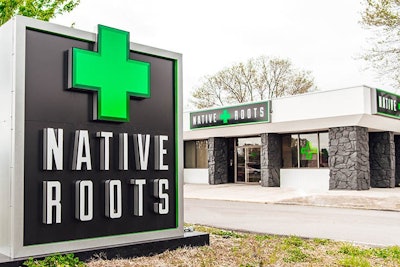

Transporting cannabis product from the grow or marijuana-infused producers (MIPs) to retailers effectively, efficiently and compliantly is a top priority. Failure to do so could deteriorate your product, pose potential compliance breeches for your company, and keep you from completing the sales cycle and bringing in revenue. Whether you have an internal distribution department or are evaluating a third party, below are four tips to help you close the sales loop and ensure you are getting your goods to market.
1. Focus on driver training and safety.
Safety programs for vehicles and drivers should include federal and state Commercial Driver’s License (CDL) best practices. These include cameras with 24-hour live feeds on the inside and outside of all vehicles, showing the driver and cargo area, as well as securable cargo space and communications equipment. Cameras can be helpful with vehicle accidents and traffic tickets. Cruise control is also a critical component in any delivery vehicle. By setting cruise control at the speed limit, drivers avoid exceeding the speed limit and reduce the risk of tickets and accidents, which increase costs to run the transportation team.
Purchase or lease new vehicles every few years to keep vehicle mileage low. The expense of a new lease or vehicle purchase is far less than maintenance costs—which increase exponentially for vehicles with more than 70,000 miles—creating a positive ROI. To deter theft, delivery schedules should be varied so they can’t be predicted.
All drivers should be required to take a self-defense and defensive driving course in case they are accosted or notice they are being followed. While it is sound policy to instruct drivers to walk away from a dangerous situation, some conflicts may become unavoidable. Drivers can better protect themselves by learning de-escalation skills and steps to be in control under adrenaline-enhanced situations. They should also follow the U.S. Department of Transportation rules and regulations for the number of allowed hours on the road.
Consider outsourcing wholesale cash pickups from your facility to a specialty armored car service to avoid putting drivers carrying large cash amounts in danger.
2. Stay compliant.
Many state regulatory bodies, such as the Marijuana Enforcement Division (MED) in Colorado, mandate that packages must be delivered to the intended destination the same day it was shipped. If the delivery cannot be completed because it is rejected by the receiver for any reason, such as quality or order error, the shipment must be returned to the grow or MIP the same day it was shipped. Vehicles must be completely unloaded each day as no product can be left inside overnight. It is also mandatory that manifests match the delivery, including METRC or other state-specific tracking-system tags. It also is advised that drivers remain on-site while product is checked-in at stores in case of discrepancies.3. Package product effectively.
Dimensional packaging approaches can make distribution more efficient and cost effective, maximizing space both inside packages as well as inside vehicles. Ensuring that all orders are made in case-quantities makes certain there are no half-empty boxes being delivered. Efficient loading also improves time efficiency for delivery schedules; load last delivery in first and first in last.
4. Track shipments properly.
All tracking is done through the manifest but can be bolstered with a courier tracking software. These types of apps allow internal departments or separate clients to have their own portals for submitting delivery requests with specific fields of information. These can be assigned to specific drivers who can access all needed information as well as mark steps complete in real-time, as they are accomplished, providing emails to senders and receivers. This creates a digital stamp of all the hands through which the product has passed in its journey.
Theresa Ekman is the supply chain director for Native Roots in Colorado.























